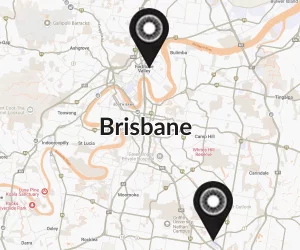
Can laser eye surgery fix long and short sight?
Do you find yourself reaching for your glasses or squinting to read the fine print on a menu? If so, you’re not alone. Vision problems, such as nearsightedness (myopia) are common issues that affect people of all ages. Fortunately, modern medicine has provided us with a remarkable solution: laser eye surgery. In this blog post, we will explore how laser eye surgery can fix short sight, but not long sight, providing clarity and freedom from the hassles of glasses and contact lenses.
Understanding long and shortsightedness
Before delving into the details of laser eye surgery, it’s essential to understand the two primary vision problems:
- Myopia (Shortsightedness): Myopia is where distant objects appear blurry, while if you view close-up objects, you can see these clearly. This occurs when your eyeball is too long, or your cornea is too curved, causing light to focus in front of the retina rather than directly on it.
- Hyperopia (Longsightedness): Hyperopia is the opposite of myopia. It makes close-up objects blurry while distant objects remain clear. Hyperopia occurs when your eyeball is too short, or your cornea is too flat, causing light to focus behind the retina.
How laser eye surgery works
Laser eye surgery, or refractive surgery, is a medical procedure where we reshape the cornea to correct your vision problems. It is a highly effective and popular option1https://europepmc.org/article/NBK/nbk488018 if you are seeking to reduce your dependence on glasses or contact lenses. Below are 3 of our most common types of laser eye surgery that can fix your shortsightedness:
- LASIK (Laser-Assisted In Situ Keratomileusis): LASIK is one of the most widely performed vision correction procedures.2https://www.sciencedirect.com/science/article/abs/pii/S0161642008013377 During the LASIK procedure, we create a thin flap on the cornea using a femtosecond laser. We then reshape the underlying corneal tissue with an excimer laser to correct the refractive error. We reposition the flap and the eye heals naturally.
- Smartsight (SMILE laser eye surgery): SmartSight and SMILE procedures are two new methods for lenticular extraction, a process used in advanced laser eye surgery. Among eye specialists, lenticule extraction is highly regarded as the leading choice for minimally invasive procedures to correct myopia, whether it includes astigmatism or not. Smartsight does not treat longsightedness as of yet. What makes this choice special is that it allows us to perform femtosecond laser surgeries without the need to create a corneal flap. This means a less invasive and more comfortable experience for you.
- PRK (Photorefractive Keratectomy): PRK is another laser eye surgery option for vision correction. Unlike LASIK, we do not create a flap for PRK. Instead, we gently remove the outer layer of the cornea (epithelium) and we use the excimer laser to reshape the cornea’s surface. Over time, the epithelium regrows, and the eye heals.3https://bjo.bmj.com/content/80/7/663.short
Does LASIK fix Myopia?
LASIK, SmartSight, and PRK can reshape the cornea for people with myopia to reduce its curvature. This allows light to focus precisely on the retina, improving distance vision. Many myopic patients experience fast results with greatly improved vision.4https://www.sciencedirect.com/science/article/abs/pii/S0886335012011364
It is uncommon to fix hyperopia (longsightedness) with laser eye surgery
We do not treat hyperopia with laser eye surgery. For this, we would offer alternative treatments to address this vision problem such as lens replacement surgery.
If you’re tired of constantly searching for your glasses or dealing with the inconvenience of contacts? Find out if you are a good candidate by booking an assessment with us to explore the possibility of laser eye surgery. Say goodbye to the limitations of shortsightedness and hello to a world of visual clarity.
ARE YOU SUITABLE?
Check your laser eye surgery suitability online with our free LASIK self-test
OUR MOST POPULAR PROCEDURES

Hi, I’m Dr. Matthew Russell, a laser and cataract surgeon
HI I’M DR. MATTHEW RUSSELL A LASER EYE AND CATARACT SURGEON
With over 15 years of experience, I enjoy the privilege of helping patients of all ages reclaim clear vision or preserve it for as long as possible.
Vision correction and high-precision cataract surgery hinge on the expertise and skill set of the provider who also has access to the most precise tools for the job. Ophthalmic surgeons like me know how to make treatment safe, comfortable and positive for the patient. They know how to minimise the risk of complications and maximise successful outcomes.
I have a passion for helping my patients enjoy the clear, high-definition vision they need to live rich and active lives. Now, I have hand-picked a team of professionals that share my passion and commitment to exceptional care.
Dr. Matthew Russell
MBChB, FRANZCO





